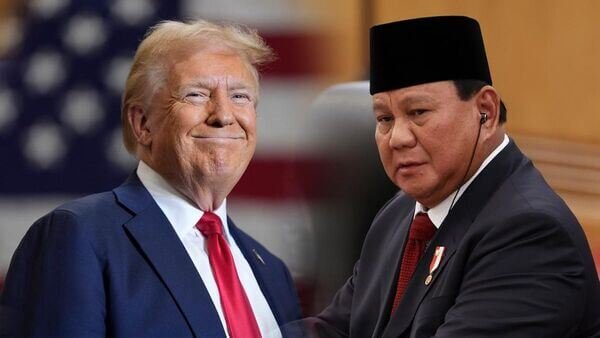The United States has recently announced new 32% tariffs on imports from Indonesia under the Trump administration, raising concerns among businesses that rely on trade between the two countries. These tariffs, part of Trump's aggressive push to reshape trade policies, could impact a wide range of industries, including textiles, electronics, and wood products.
The administration aims to protect American manufacturers by making foreign imports more expensive, reinforcing its stance on economic nationalism. But the move isn’t without risks. Major ones.
What Are Tariffs and Why Do They Matter?
Tariffs are taxes imposed on imported goods, making them more expensive for domestic buyers. Governments use tariffs for various reasons, including protecting local industries, reducing trade deficits, or responding to economic disputes. However, while tariffs can shield domestic businesses from foreign competition, they also increase costs for consumers and companies that rely on imports. In the long run, tariffs can escalate trade wars, disrupt global supply chains, and slow down economic growth worldwide.
The Trump administration's +32% tariffs on Indonesian goods are part of a broader effort to assert US economic interests, but they also pose risks to global trade stability. By making Indonesian products less competitive, these tariffs could encourage retaliatory measures from Indonesia or other affected countries, further straining international relations and economic cooperation.
The Impact of the New Tariffs
The Trump administration's tariffs are designed to reduce reliance on foreign goods and strengthen domestic industries. While the exact tariff rates vary across sectors, Indonesian exporters now face significantly higher costs when selling to the US. This move puts many businesses at a disadvantage, as their products become less competitive compared to those from non-tariffed regions. The resulting price increases could also affect American companies and consumers who rely on Indonesian imports for raw materials or finished goods.
For Indonesian businesses, the US remains a key market, and these tariffs introduce major challenges. Reduced demand, disrupted supply chains, and the need for price adjustments may force companies to reconsider their export strategies. Some firms may seek alternative markets, while others could push for negotiations to ease trade restrictions.
A Major Deal in Jeopardy
One company directly affected by these tariffs is Kaltimber. While the US market isn’t very important for us in regards to both other international areas and the domestic market, Kaltimber has been negotiating a major contract with a very big US company to supply reclaimed wood decking and Naturanexa’s furniture, a deal that was expected to strengthen trade ties. However, with the sudden introduction of tariffs, the financial viability of the agreement is now uncertain. Increased import costs may push the American company to reconsider its sourcing strategy, potentially derailing the deal.
This situation underscores the broader risk faced by businesses invested in sustainable materials, a word that often provokes the anger of Donald Trump, a known defender of fossil fuels and other environmentally damaging trade. The tariffs could push buyers toward cheaper, non-sustainable alternatives, undermining global sustainability efforts in favor of short-term economic protectionism.
What’s Next?
Indonesian exporters and their US partners must now navigate a challenging trade landscape. Some businesses may restructure their supply chains, while others may push for exemptions or policy adjustments. Under Donald Trump and Prabowo Subianto’s leaderships, trade groups and business coalitions are expected to lobby for sector-specific relief, so negotiations might lead to lower tariffs in the future.
For Kaltimber and similar companies, the challenge extends beyond financial impact. Ensuring that sustainable materials remain viable in international trade will require advocacy and strategic adaptation. As global markets increasingly value eco-friendly practices, there may still be opportunities to counterbalance protectionist policies with initiatives that promote sustainable trade. The coming months will be critical in determining how businesses respond to Trump's tariffs and whether trade negotiations can mitigate their negative effects.





